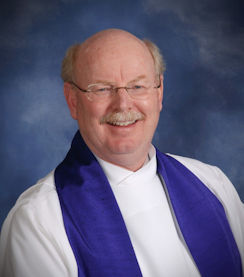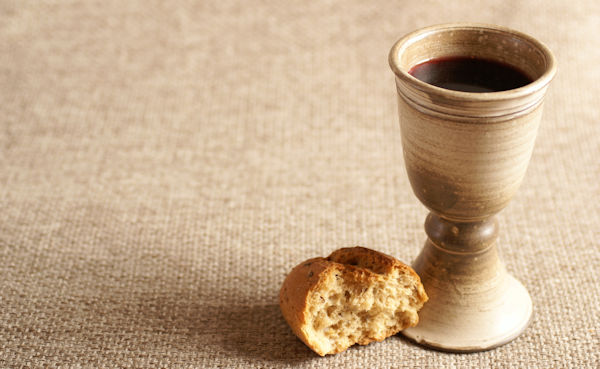In this month’s Drinking the Cup, the Rev. John Boley addresses the “idolatry of whiteness.”
REV. JOHN BOLEY
Clergy Assistant to the Bishop
 The most compelling book I’ve read recently is “America’s Original Sin” by Jim Wallis. Wallis is well known for his work with Sojourners, and in this provocative book Wallis claims without apology that America’s original sin is racism, and it is based on the idolatry of “whiteness,” which some might call “white privilege.”
The most compelling book I’ve read recently is “America’s Original Sin” by Jim Wallis. Wallis is well known for his work with Sojourners, and in this provocative book Wallis claims without apology that America’s original sin is racism, and it is based on the idolatry of “whiteness,” which some might call “white privilege.”
I had not seen much publicity about this book, but read it when it was thrust into my hands by a friend. I can understand why it might not have gotten wider publicity – because it is a truth-telling book which is every bit as direct and convicting than Wallis’ book “God’s Politics.”
Wallis recounts the history in America of racism, going back to slavery and our tragic racist history since the end of the civil war. But this book is compelling because Wallis is so adept at placing things in the right theological context. Wallis speaks the language of both evangelism and social justice, but more importantly, he is a theologian who always hits the nail on the head with respect to faith in our triune God.
Racism is Sin. For many of us, we don’t speak the language of Sin very much anymore, even though we probably should. So if racism is sin, we must overcome our focus on color – “dying to whiteness is essential to our spiritual integrity.” Wallis goes on to say that whiteness is not just an ideology, it is also an idol. As the Ten Commandments teach us, idols separate us from God, and the idolatry of “whiteness” has separated white people from God.
Wallis quotes Genesis 1:27-28, where God creates humankind in God’s image, male and female he created them. He point out the obvious – that all human beings are made in the image of God, not just white human beings. While this seems almost like a truism for most of the groups that we are part of, we have to have intentionality to apply it to the “other” – the alien, the refugee, the foreigner, the other race or ethnic person or group.
So, I’ll confess. While every ounce of my being wants to deny it, I am racist. But Wallis draws a distinction between explicit bias and implicit bias. I would pray that I have never explicitly promoted racism or white privilege, although I probably have. But implicit bias is woven into our very fabric, of our white privilege, our culture and our institutions. And I know that I have been implicit in my racism and my approval of white privilege. In this time of Lent, I confess my sin of explicit and implicit racism.
It is much easier to speak the language of social justice, and it is essential to do so. But when we speak only the language of social justice, we end up with political polarities and we become mired in the political paralysis that right now grips our country. And we don’t have the tools to fight the resurgences of explicit racism that are being promoted right now. So maybe it is time to go back to telling the truth – racism is sin, and our preoccupation with whiteness is idolatry.
But it is not all depressing. There has been so much progress. Through the power of the Holy Spirit and seeking a justified and sanctified life, we can overcome or at least cope with our idolatries and our sin while living with the joys and benefits of discipleship and following the path of Jesus Christ. Thanks be to God.
Last Updated on November 7, 2023

